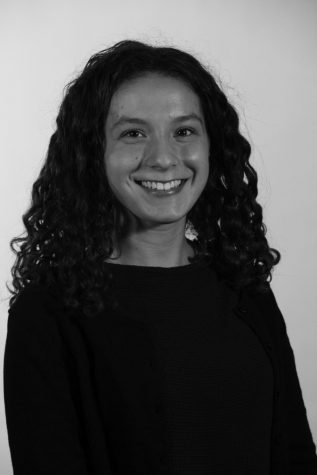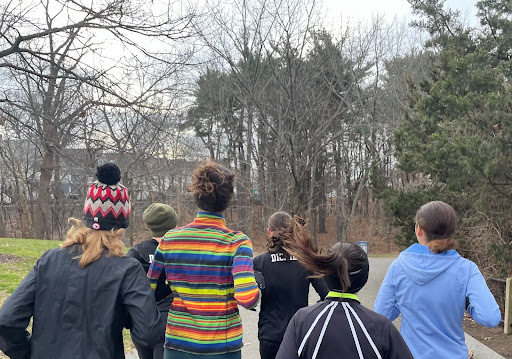School Committee Continues AV Discussion with April Meetings
May 2, 2018
On April 23rd and 24th, the School Committee Ad Hoc Sub-Committee on the CRLS Attendance Violation (AV) Policy held two meetings to discuss the policy and the issue of student attendance. School Committee subcommittees are smaller groups of only a few School Committee members that focus on particular issues, and the main purpose of these meetings was to allow community members to share their feelings about the current AV policy—which allows students to buy back class time missed due to unexcused absences or tardies through meeting with their deans and teachers. The meeting was also an opportunity for the School Committee to hear suggestions for how the AV policy can be improved.
In the meeting on the 23rd, the CRLS administration updated the School Committee on how attendance has or hasn’t changed since the introduction of the new AV policy this semester. Vice Principal Tynes said that the average percentage of absent students per day has stayed around 13%. However, Mr. Tynes noted at that meeting, “We’re not having as many [attendance violation failures;] kids are taking advantage of the buyback program.”
During the meeting on April 24th, School Committee member Emily Dexter summarized the main topics brought up as being the actual AV policy, communication about the AV policy, transportation to school, later school start times, and improving students’ motivation to attend class on time.
Several parents of present and incoming CRLS students were also in attendance at both meetings, and they spoke about the benefit of a later start to the school day, given that teenagers tend to operate on a later sleep schedule.
Physics teacher Tal SebellShavit attended the April 23rd meeting, explaining, “The AV policy is something I feel strongly that we need to figure out.” He came into the meeting emphasizing the importance of the AV policy for teaching students that even if they don’t like going to class, they have a responsibility to be there. He also brought up that, currently, there is poor communication between deans and teachers about the time students are buying back. As of now, teachers are not informed when a student decides to buy back time. Mr. SebellShavit argues that they should be, given that the student could be making up time and subject matter from their class. Mr. SebellShavit told the Register Forum that, in response to hearing what parents at the meeting had to say, he came away with an even greater appreciation for how intertwined the act of showing up to school is with how engaged students are in the classroom.
“The root of the problem is that students are not seeing school as a first priority,” said Cambridge Youth Council (CYC) member Lorra Marseille ’18 at the meeting on the 24th. The CYC has been one of the main student groups advocating for changes to the AV policy and was present at the meeting on the 24th. Marseille continued, “If we keep focusing on smaller things—surface-level things—we’ll never actually get to the root of the problem and fix it.” At the meeting on the 23rd, School Committee member Kathleen Kelley posed questions on the complexity Marseille articulated: “How do we deal with with the issue of intrinsic learning? How do we develop students who want to learn?”
Ms. Dexter added in an email to the Register Forum, “The School Committee needs to provide better support to CRLS teachers and the CRLS administration so they can figure out how to ensure that all students feel welcome in the school—particularly low-income students, students of color, English Language Learners, and students on IEPs—[and] how to create closer and more personal relationships with students.”
Mr. SebellShavit said in an interview with the Register Forum that he also came away from the meeting realizing that the current AV policy punishes students twice—not only do students lose instruction time due to their absence, but if they don’t choose to use the buyback option, their grade can drop ten points. After realizing this, Mr. SebellShavit posed the following question: “How do we make [the AV policy] something that is taken seriously and has repercussions—but again, as [was said in the meeting,] isn’t doubly affecting a grade?”
Parents, students, and teachers also reiterated how transportation and the MBTA affect attendance and how the disparities in access to public transportation create inequity. For example, some students at CRLS can take buses that bring them right to CRLS from their neighborhood (e.g. the 69 and the 72), and if this bus is late for some reason, the MBTA knows to contact the school to excuse the students’ tardies. However, many students do not have access to buses that go straight to CRLS—and so, if the bus they take to school is not working, they are not automatically excused. In addition, some students cannot afford public transportation and have more trouble getting to school because of this. School Committee member Emily Dexter reiterated that the School Committee is already working with the City Council and the MBTA to try to make public transportation for students more reliable and to lower costs for students who receive free and reduced lunch.
Although the School Committee is making progress on the policy, and the several conversations they have hosted on the issue are evidence of this, some students feel that change isn’t happening fast enough. Elaina Wolfson ’18, who has been working with Rory Millar ’19 on a CYC subcommittee devoted to the AV policy, commented in an interview with the Register Forum that “It feels like Cambridge is full of a lot of talking, and they want to hear your ideas, but it never really comes to fruition.”
Wolfson and Millar have been focused on the matter of affordable transportation and are frustrated by the lack of support they have received from the city. Millar commented that there was a commitment made by the City Council to allocate funds for MBTA passes for the 2017-2018 school year but as of yet, the passes have not been funded. Elizabeth Liss, the education liaison of Mayor Marc McGovern’s office, confirmed during the meeting on April 24th that the city had intended on funding these passes and added that they plan on “opening conversations to move that forward.” According to Ms. Liss, “There was a recommendation that came out of a transportation committee report that asked [the possibility of subsidizing MBTA passes] to be moved over to a School Committee discussion.” The topic of subsidizing MBTA passes was on the agenda for the full School Committee meeting on May 1st.
According to Emily Dexter, going forward, the CRLS administration plans to work with Deputy Superintendent Dr. Carolyn Turk to improve the current version of the AV policy, taking into consideration what community members said at the meetings.










